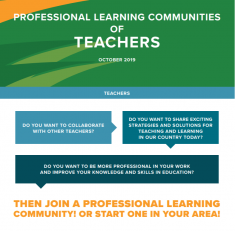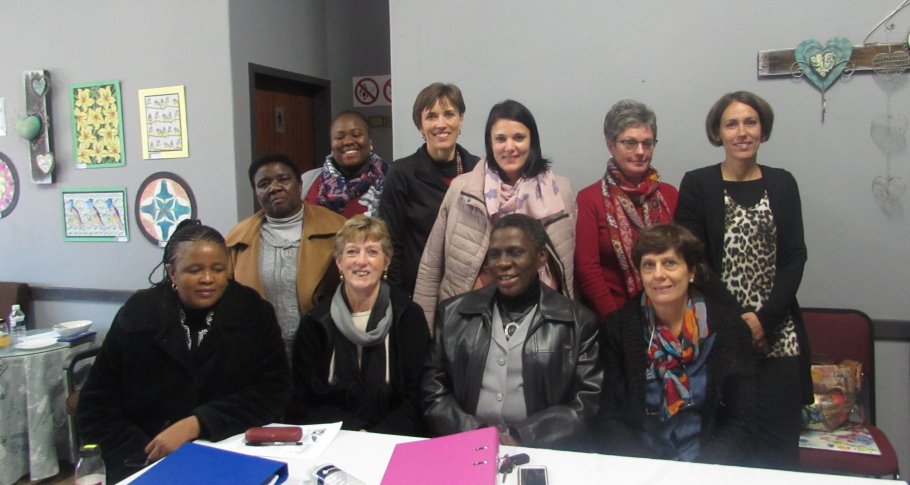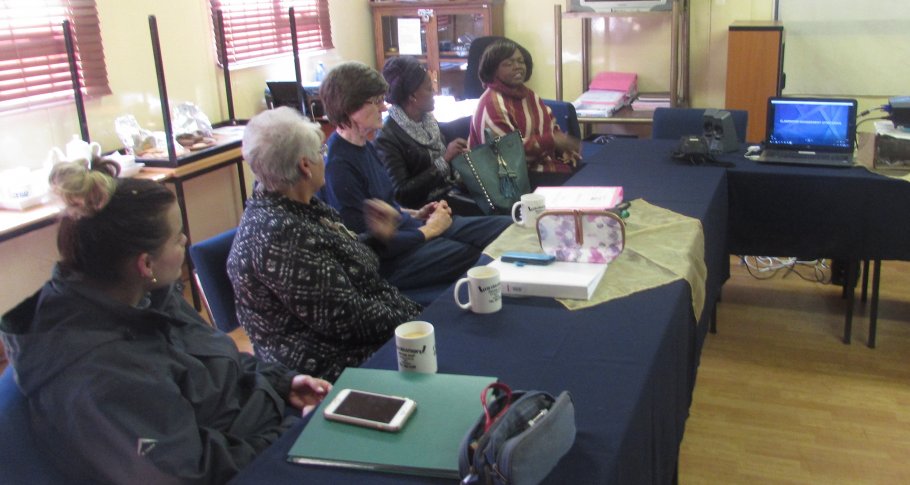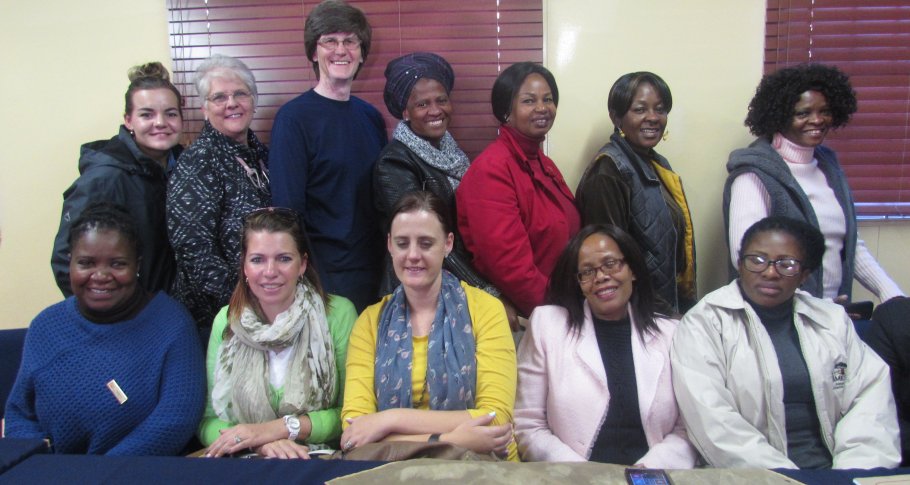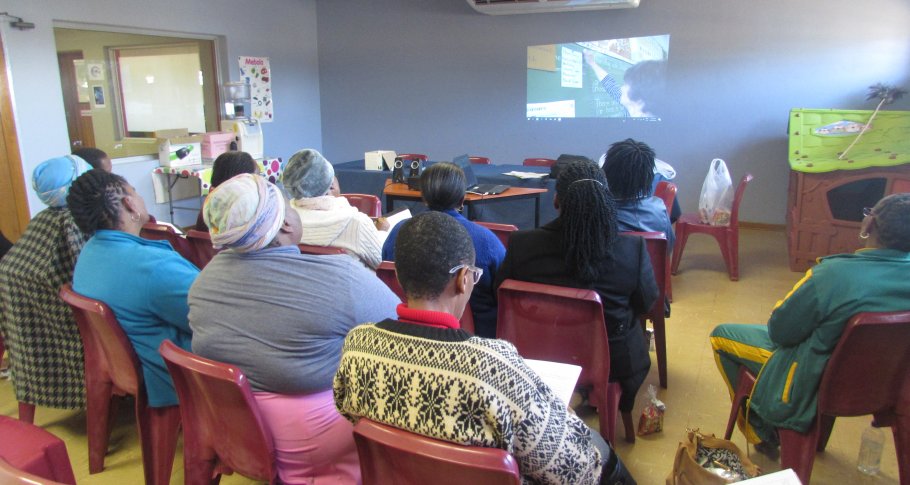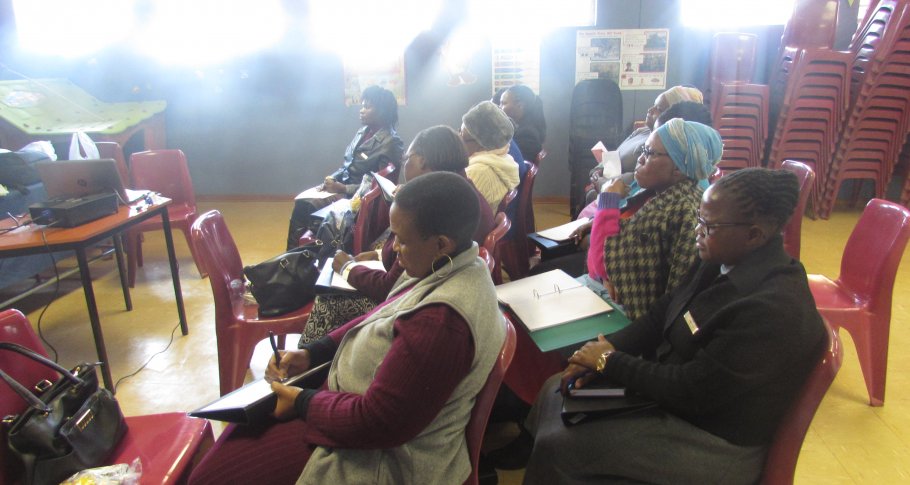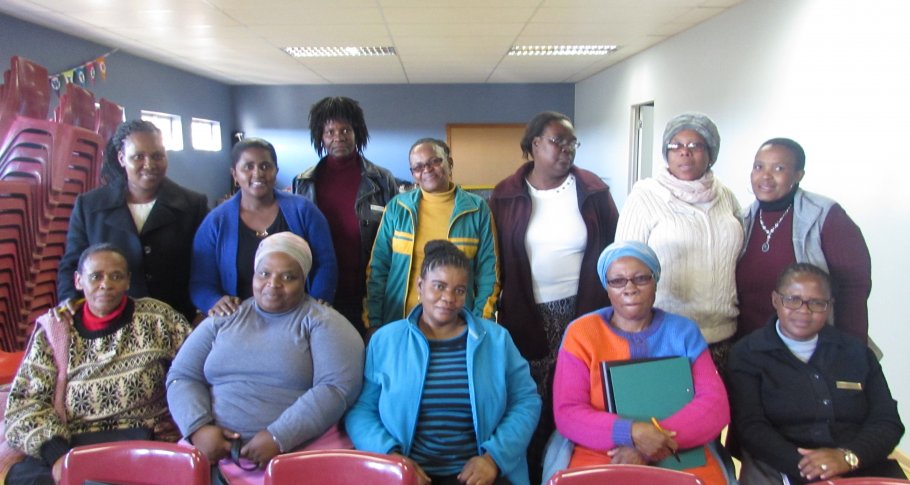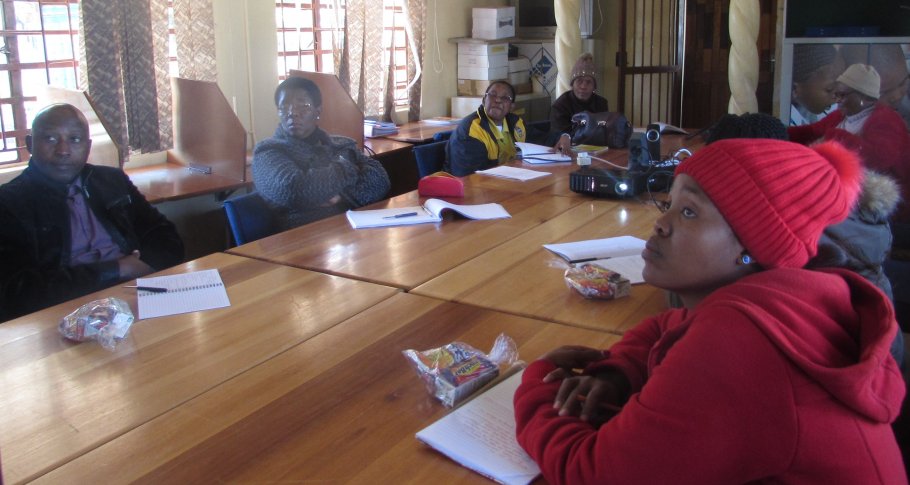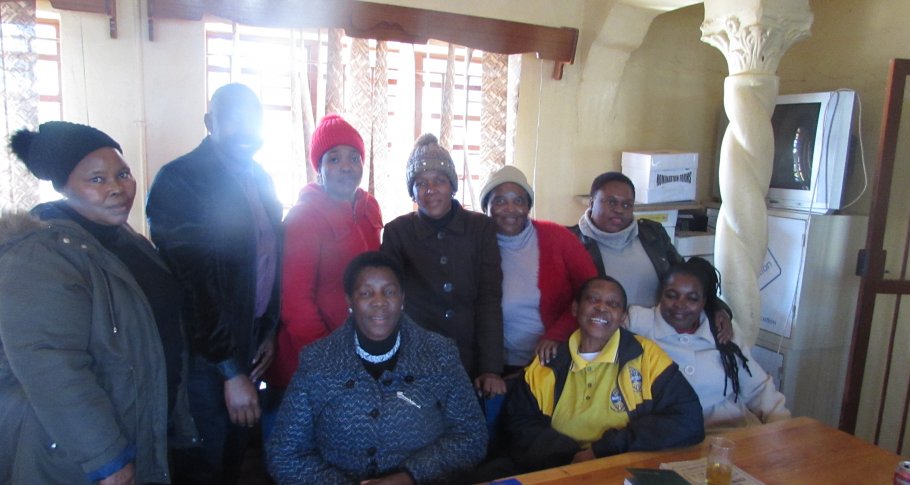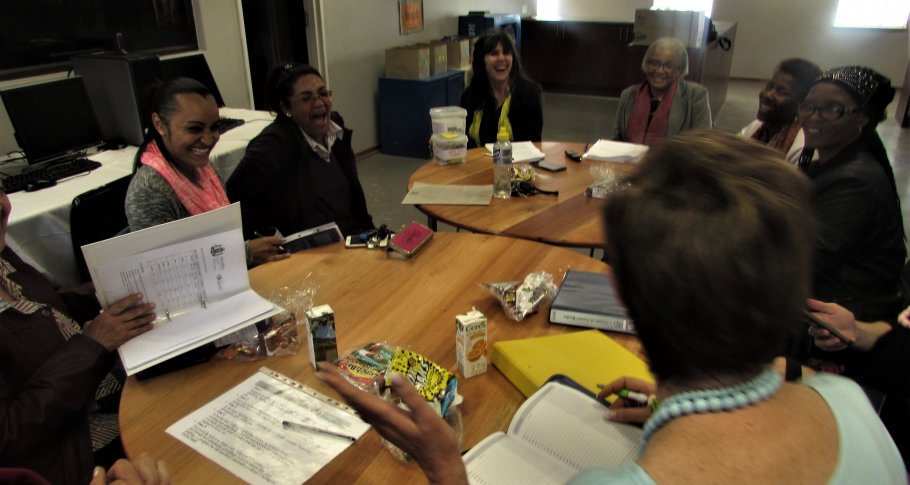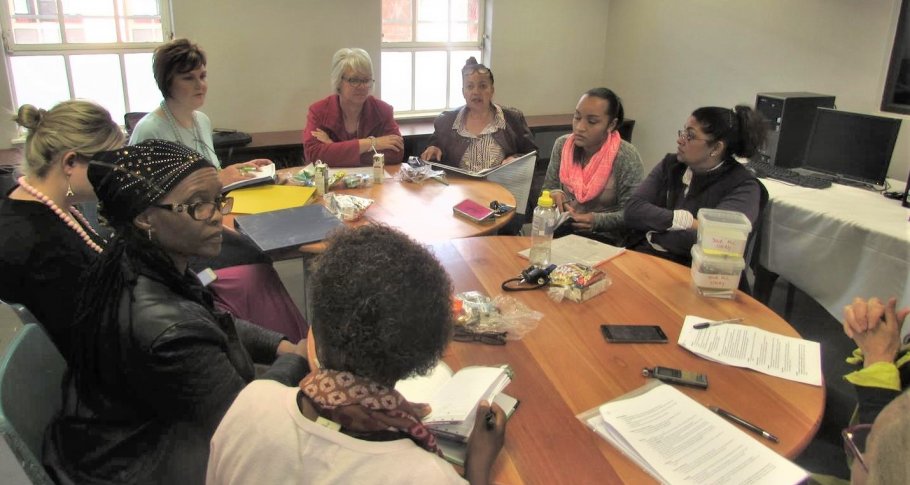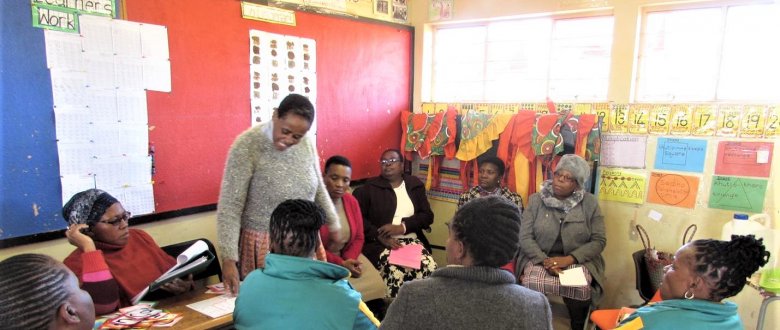
Professional learning communities (PLCs) as a means of teacher collaboration and professional development have become a mainstay in the Free State province. While many officials and teachers were already familiar with the concept, we now see more and more teachers coming together in PLCs. In 2019, VVOB set up three workshops over a seven-month learning trajectory for coordinators of PLCs (teachers and subject advisors) in the Free State province, significantly changing their perceptions.
Teachers realised that by coming together and sharing their methods and techniques, they can assist each other greatly in dealing with classroom matters. During the three workshops, teachers deepened their understanding of PLCs: they are teacher-driven and deal with what teachers consider important. Teachers practised skills necessary for facilitating successful PLCs and brainstormed ideas to recruit and encourage other colleagues to participate.
At the same workshops, subject advisors explored the support that teachers need and how they can nurture PLC activities. During the trajectory, subject advisors became more aware of their roles in PLCs: to give teachers space and offer them support for their PLC activities and any other issue that they required. Subject advisors participated in simulations of PLC sessions, enabling them to observe and simply listen. In this way, they soon realised the importance of identifying topical issues: challenges that teachers are actually dealing with at that very time in the schools.
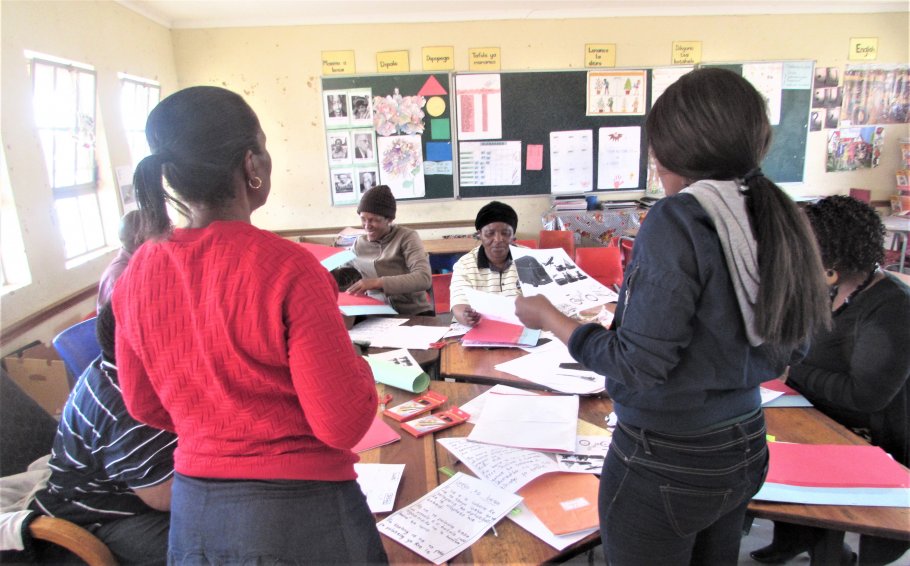
Understanding PLCs
How subject advisors and teachers perceive PLCs, is indicative of their effectiveness. Therefore, a proper understanding of the concept of PLCs is important. Trusting relationships are crucial, too. Subject advisors and teachers have to work together, with teachers developing their own solutions for the challenges they are facing, empowered by the subject advisors. We noticed in these learning trajectories, that once changes in practice emerged, there was a surge in the number of PLCs, and many dormant ones resuscitated. Obviously we hope and even presume that having more (and efficient) PLCs and teachers sharing their challenges and how to tackle them will gradually lead to improved learner outcomes.
PLC trainings are useful to support participants through implementation processes, to put into practice what they have learned (also e.g. in once-off workshops). An important part of the trajectory was to demonstrate how to initiate and implement the sessions. Participants learned how to start a PLC and to take small practical steps afterwards, like ‘what to do at the first meeting’ or ‘facilitating the PLC’. This is one of the reasons why subject advisors found the training different: ‘We suddenly realised how it could be teacher driven, yet supported and encouraged by us.’
Critical success factors
As district officials, it can be difficult for subject advisors not to become ‘player, referee and coach’ at the same time. During joint sessions, the subject advisors observed the demonstrations and simulations of the teachers and their strengths and passions. As one subject advisor noted, it 'shifted the responsibilities of initiating PLCs to teachers, instead of officials.' Subject advisors and teachers developed a collaborative and complementary working relationship, which allowed the officials to find their place and role in the PLCs.
In between the workshops, activities took place that the teachers had developed during the workshops. Based on their action plans, subject advisors made their own programmes on supporting the teachers and mobilising resources. These activities allowed the participants to try out ideas and to make sure that the workshops had realisable practical objectives.
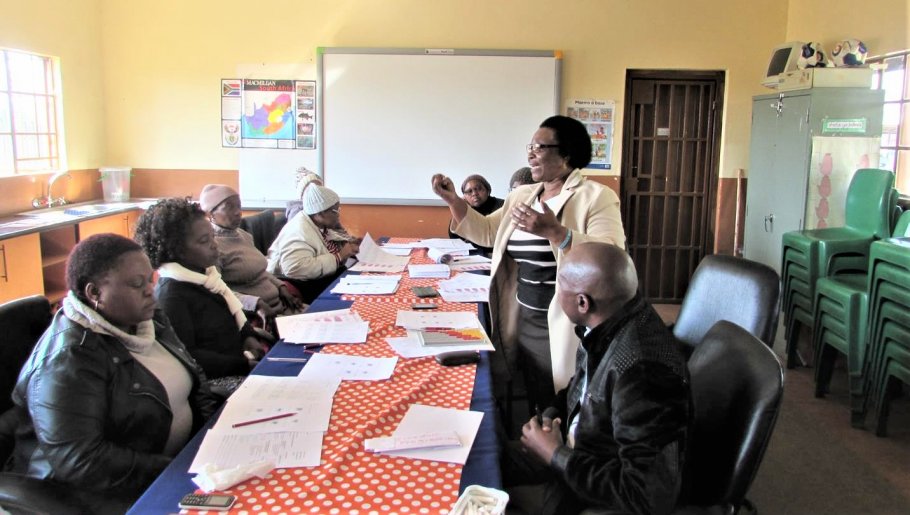
Lessons learned
School managers, whether they are the principal, deputy or departmental heads, can create a conducive environment for PLCs. Involving and consulting the School Management Teams (SMTs) will enforce future trajectories.
Covid-19 and online PLCs
Together with the Department of Basic Education (DBE), VVOB continues to learn more about PLCs and their practical implications in South Africa. This knowledge is continuously documented and consolidated through materials for dissemination. In 2019, VVOB supported the DBE to develop leaflets to assist teachers, principals, and district officials to better understand PLCs and their implementation. Earlier that year, four videos were developed on how to facilitate PLCs, key messages, support systems and testimonials from teachers who had been involved in PLCs. They were used as resources in this training trajectory and are also available on FundaOER, South Africa's website for Open Educational Resources.
The Covid-19 outbreak encourages us to explore how PLCs can collaborate online. What are online PLCs? How to join or set up an online community? How to build and share content online? What is the role of the online facilitator? In 2020, the PLC training is being converted into three online training courses. More materials (like these leaflets for teachers, principal PLCs, principals in support of teachers and district officials) will be developed into digital stories to reach more audiences.
